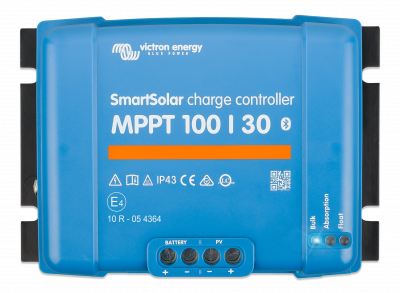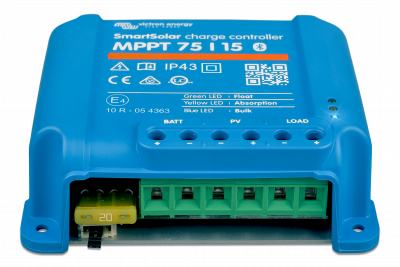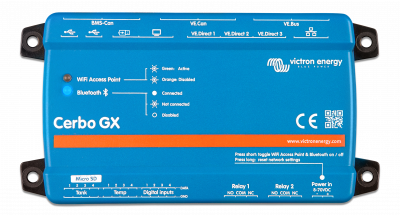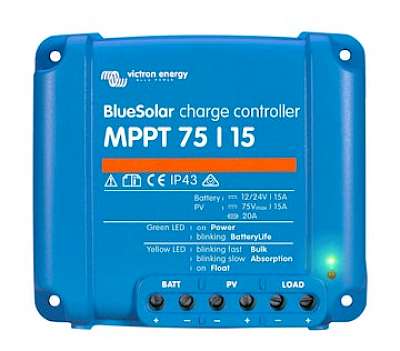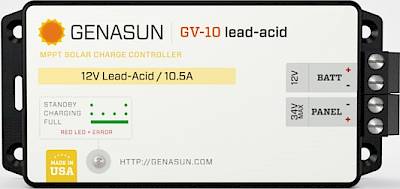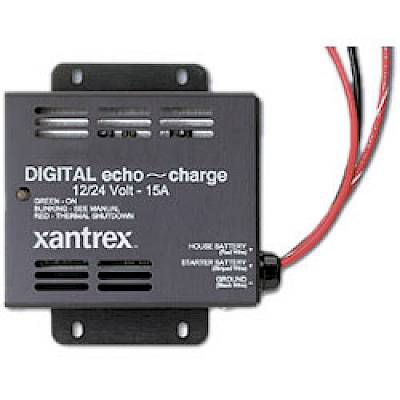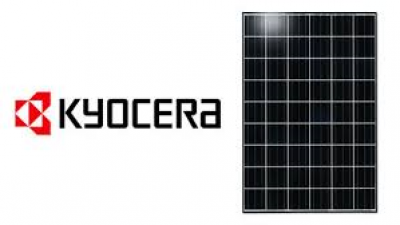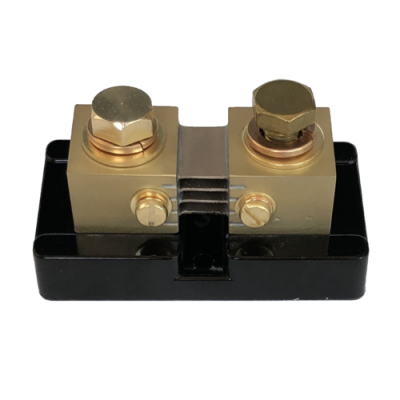Boat Solar Controllers 101
Transcript is auto-generated.
solar panels on boats and controllers and we our guest speaker is nigel as you can tell from my smile it's hundred percent genuine and always a pleasure nigel thanks for joining us here today thank you jeff awesome we actually have a lot to talk about yeah we do there's been a raft of new technologies coming into the solar world in the last few years and some of them as recently as last year which have basically um changed many of the prescriptions we've used for for recommending panels on solar panels on boats so it's a really good time to be talking solar tom whitehead who's a expert on the controller side of solar panels and as he he just wrote an article in the latest edition of professional boat builder magazine oh wow which is well worth anybody that wants to get a head around solar controllers uh that's the best article best information around at the moment on solar controllers so let me get out of the way and i'm gonna put tom in here all right let's do it let's have tom chime in hey tom hi jeff how are you hey i'm doing good i'm doing good thanks for joining us oh it's my pleasure yeah so we're going to talk about solar controllers um so we had a few talking points a little bit and maybe i'm going to ask you some questions steer a little bit the conversation of course you know the podcast it's not doesn't have to be too uh sort of regimented in terms of our approach um let's talk about a little bit about the one of the questions i get a lot asked from uh youtubers and fellow voters is jeff what about pwm versus mt mppt you know um and by the way i should have actually go before that um let me just pause put contacts everyone a controller is an essential part of the solar array uh for everyone that's wondering uh you really can't do without one um the sun might be shining that day a lot and your batteries are full and your batteries don't need more power and so the job of the controller is to really have a brain and decide what should it do with the solar energy that it is available to utilize right ultimately it's making decisions you know what should it do with the energy should it charge at 13 volts 14 volts on a 12 volt battery bank it's constantly looking at the voltage making decisions so that your batteries are charged as fast as possible but also not overcharged and yes i have seen people connect solar panels directly to batteries and uh it does happen um you know obviously you know we all make mistakes and that that's normal but yeah you know some solar panels are 20 volts 22 volts 24 volts some panels are only 7 or 8 volts some panels are 35 volts so all those voltages need to be modified and adapted so that the batteries get what they want and so here with tom what we're going to be talking about next is how do you go about choosing a solar controller for your boat so back to my question i guess tom is this this uh dilemma that people have uh with pwm versus mppt controllers do you want to weigh in on that a little bit and give the listeners a sense of that choice absolutely i actually wanted to touch base on what you were just previously saying about whether they need a controller at all because i actually get that inquiry sometimes people say well i need a 12 volt panel for my 12 volt batteries and actually a fair number of installers even who are new to solar have have no clue that a lot of panels are less than 12 volts too so yeah um as far as pwm i'm not a total expert on it but my understanding is that that stands for pulse width modulation yeah that's what i understand it's an it's an earlier technology that can be efficient under certain circumstances um essentially it because all of our charge regulators use target voltages right and so to hold the battery at its target voltage once it gets there it it interrupts and does a pulse to hold it there and the newer mppt controllers actually convert the dc current to ac and then back to dc again and during that conversion process they're able to maximize what they call the powerpoint tracking so it's where are we being most efficient where is the maximum current happening and then through the magic of electronics it it optimizes that um so in general like here at ocean planet we we don't sell any pwm controllers now in certain um i think land-based installations um it can be a much more affordable way to do it but i mean the mpt ppt controllers are coming down in price as well so i don't see it as even a question um we only sell the mppt especially on votes where there's so much shading and so many possibilities that you know things are going to be inefficient anyway um that we only we only sell the mppt yeah and you bring a good point tom i i you know same here we've never sold a pwm um not again it depends i think on the price of your solar array right so if you're going with a rigid panel and you're getting away with 100 panel you know it's going to be harder to spend 150 on a controller you know that it's hard to justify you know the controller's more than the panel but if you're going with flexible solar panels or high-end solar panels and now your panel is you know could be two three four five six some panels are thousands of dollars depending on the make and the model you know then the controller is the smaller percentage-wise is a smaller fraction of the overall rate and you're right i think on land it's definitely be used for voters out there that are using really inexpensive obviously uh very budget conscious rigid solar panels then yeah maybe pwm might make sense for you because honestly we can't judge you know some of us can't afford what we want we do what we can but if you are spending quite a lot of money on good flexible or even good rigid panels yeah you're going a long way then i always tell people i'm not telling you what to do but i strongly encourage you to look at mppt and yeah you know the efficiency difference is huge i think it's almost you gain another it's over twenty percent i think it can be efficiency it can actually be as high as 30 percent wow so i would even use that as a sales pitch to someone with that big glass panel it's like hey you want to get 30 more power out of the panel that you already have switch to this controller we do that a lot uh to be honest there's a lot of boat builders are still doing pwm uh budget bull builders that happens and we tell people you know you might have a 200 watt array on there but you're only having right now you're all over pwm and you're right the tom that's a good point some of us as voters have an array already and if you want to just do more out of that array than you have swapping the controller might be one way to instantly overnight maximize get the rated output that you would hope from that array from the get-go without actually doing anything else not changing the solar panel not changing the wiring just simply swapping out the controller from a pwm to an mppt yeah that's a good point yeah well so if i'm going to walk a customer through picking a controller yeah tell us you basically start with real estate to pick out what panels are going to use because on boats the real estate is is prime you know it's hard it's hard to find where you're going to put the panels so that's your first thing and then once you end up with what panels you have uh the next important consideration is the shading so how are these panels going to be shaded um is the boom on top of them is it not et cetera et cetera so our our first thing that we usually recommend is one controller per panel for optimal efficiency um and then if there isn't uh you know a big concern about shading let's say a typical thing is like up on the fly bridge of a power boat um people are now asking me for more solar to you know keep their refrigeration running while they're sitting on the mooring um up there where there's no shading i'll recommend putting the panels in series right which will then dictate the size of controller that you use to me that's the next best option if there is shading some people uh recommend going to putting the panels in parallel as opposed to series uh which will then change you know the resulting current and voltage that's going to the controller so that will also dictate the controller yeah and you bring a good point here um there is no and i get this all the time i mean i'm talking every day i'm talking like 10 times a day you know people are like hopeful they're asking these leading questions and they say oh yeah can i i'll just get one control for all my panels what they're trying to do is they're i i know we're all doing the same thing we're trying to save money right voting is is an expensive hobby for all of us regardless of our income you know we're always stretching ourselves to have the best vote we can afford so it's it's hard for all of us even even some of my clients that have a lot of money it's still a huge expense for them because proportionately they're spending a lot of money on their boat so we all feel the same way and what i see is they were saying oh maybe i can get away with one control for all my panels i'm like yeah you might let's say you could uh but remember that controller is size for various factors and you brought those variables like one would be you know what is going to be the maximum input voltage of the panel the other is what's going to be the maximum amperage coming in or through that controller either from the panel to the controller from the controller or the battery what's the max average what's the max wattage of that array what's the and and also you know can you configure that uh controller for charging let's say for example a firefly battery or an agm or a gel battery bank right can you customize the charge profile to fit the battery you have and then also one error i did and i forgot i remember this a few years ago you know didn't ask the owner if he had a 12 volt or 24 volt system you also have to decide yeah if you've got a 24 volt system you've got to make sure that you get a controller not all controllers are able to connect to 12 and 24 you know sometimes you have to buy the right controller for the voltage uh of your battery bank so yeah well choice we've been selling more solar systems for electric propulsion um support as well and there you're getting into 36 volt 48 volt right and again that's a really good point what is the voltage of the system you're dealing with uh the other big hurdle um or the big decision that you need to make is whether you need on the one hand a buck controller what they call a buck controller which brings like your 20 volt panel down to 14 volts or if you need on the other hand a boost controller because a lot of the mono cell panels that we sell nowadays are under 12 volts they're only putting out say 9 volts or even 12 volts which isn't enough right because we're charging to 14. so that's another really important distinction and often if you have let's say three medium to small panels and you want each panel to have its own controller then it has to be a boost controller yeah and currently there's really only one really good boost controller on the market which is made by the genisyn corporation uh i think we have yeah this this is not a boost controller but you can look like that the size of it yeah it's about the size of an old chalkboard eraser to those of us who remember what a character racer is um they um anyway and the only other boost controller that we've sold is uh by the western company from italy um and the differences between those two are essentially this one does temperature compensation by uh being in the same space as the battery right so it senses the ambient temperature around the battery so this has to be in the battery space or like in a similar locker next to the battery so it's about the same temperature the western boost controller actually runs a wire to the battery and so you have a little more choice about where to mount it um western also makes a really unique controller the wm10 which does either buck or boost so if you have a panel system that's that's fluctuating between being a little bit under 12 and then over like if you have two panels you you hook up to wm 10 and it'll it'll do both so that's a pretty cool um option um but like we've been hounding victron for a year or so like you guys need to come out with a boost controller and yeah that's so true um you know on my boat when i did my solar array about eight nine years ago i had three panels uh that were 50 watt soybean 50 watts sp 50s and all of them were connected to exactly two boost controllers and i think it's essential you brought that point up and even it you know all of us get sort of uh maybe not you know hurdles you know i guess surprising things and and it's often that people come back and say i have a 12 volt battery i want a 12 volt panel you know that assumption and i remind it's really important to remember that it's not that the panel is not worse because it has a lower voltage you know and it's not better because it has a higher voltage at the end of the day there's no way that your panel will ever output what the battery needs over time adapting as the battery gets g d char discharge or charge and so you have to have a controller and the question is are you going to get a boost because the camera voltage is lower than what you need or are you going to get a buck which means you're going to bring it down or that western by the way we've had success with that western marine as well you know we use it sometimes and it doesn't make sense it's a little bit bigger controller not as compact um it also has a little readout screen on it and some people love that yeah they can just look right at it and they don't have to remember what the flashing lights mean that it's reading oh so many watts are happening um that's another nice thing about them so do you want to talk a little bit it sounds like you're pretty familiar can you talk a little bit about though i get questions about those lights on those jettison controllers a lot do you want to talk talk a little bit about uh can you talk a little bit about those status lights on their controllers by the way um i'm not the person who keeps data in my head very well so usually when a customer calls me i go and i open the manual and double check yeah but essentially like on the jet these genesis there's this little led light here and it will flash at different rates so if it's flashing really quickly that means it's charging but at kind of a low amperage below where it's supposed to be so you know it's not really doing its full thing if it charges at a more regular like one second interval if it flashes sorry um then you know it's it's charging at the bulk uh absorption setting if it's solid green that means the battery's charged and it's and it's done um then there are a myriad of red lights and that flash at different rates to tell you different things are bad um and then there's another one that tells you that the fuse inside the unit is blown um so it it's actually quite useful the led yeah and uh jennison's pretty good about uh you know laying that out in the manual yeah reading the manual always i get i get i mean we uh so many of us don't read the manual often enough or we read it and we put it away and we forget the the other thing too it's worth noting i get this all the time people expect solar to charge their batteries at maximum output regardless of the state of batteries um i get this all the time like oh my solar i'm looking at my battery monitor you know i'm not charging you know why am i not putting out you know i've got a huge array why not seeing 10 amps 15 amps as i sometimes do i'm like are your batteries full yeah i'm like and i tell people i'm like well you know what actually the battery's a little bit like you you know like at one point there's such a thing as an appetite you can't you can't force feed a battery yeah a charge and for you to see what the maximum output of your controller is the only way to do that is to have the batteries in a clearly depleted state some sort of discharge and i'm not talking going from 100 to 99. i'm talking from you know you probably want to be somewhere where you can see at least where potentially both maybe 70 know that the batteries are low enough that solar can't do everything you want and then the controllers are going to do everything they can and then they're going to be assuming again that it's relatively sunny that it's best part of the day you don't have shading that's when you're going to be able to look at the diagnostics on those leads leds and you're going to be able to see okay yeah now i'm seeing what i thought i should see or what i saw another day because it's going to change every day depending if your batteries are going up yeah i think that's a that's a really good point and the analogy that i use the most is the reservoir analogy so i i equate a battery to a water reservoir okay and if the water reservoir is low then the charge sources can put the full amount of current or flow into that reservoir and it could be your alternator it could be your shore power charger could be your solar they're all pumping water back into the reservoir but when the reservoir gets full that stream is going to slow down to a trickle because it can't you can't force it in there once it's full and sometimes that helps people because they yeah they get confused about what i mean and myself included when i first started working with bruce i kept thinking that these chart sources were sending voltage you know they were sending 14 volts but they're not you know it's the batteries at 12 and it's trying to get to 14. yeah so that's another thing that you know since it took me a while to figure that out i often explain that to customers because they often have the same misconceptions raise the voltage to a certain target and then hold it there um and there's often that question of hey is my is my alternator fighting with the solar oh yeah all back and forth um and sometimes i will tell people uh to use a breaker as their main fuse for solar that they can then turn it off so that if they want to see this separately what's going on turn the solar off when your batteries are discharged fire up the engine see what the alternator is putting in shut that down turn the solar back on to see what the solar is bringing see how they act because they really should act completely independently until both of their voltage sensors start picking up what the battery voltage is and then that because that was the point i wanted to make that these the other great thing about the mppt controllers is that they are mimicking what we're trying to do as modern charge controllers is three stage at least i think victron's up to six stages now but at least three stage charging right where you've got your bulk stage your absorption phase and then the float phase um it's another real advantage of having solar on your boat is that especially if you have lead batteries they are never fully charged almost ever um and so the solar can do that finishing charge for an extended period of time when you know the boat's sitting out on the mooring especially if you're not sure sign you know if you're not plugged into your shore power um the typical typical sailor never fully charges their lead battery with even if they run the alternator for you know two hours a day it could take 12 hours to fully finish charging that battery and keep it from sulfating so having a nice solar system on board um really helps with that finishing charge i totally agree and it's and it's regulated it's it's sending it at the proper float voltage um yeah it's so so true and it's you know in some ways you know here sometimes we have power outages you know it does happen not it's not the grid failing but wind storms you know uh right you know uh you know windstorm's going to happen some power lines are going to go down um and so solar even when you're connected to shore power you know on my boat i don't get to see it every day some some boat owners get to see their vote every day that sounds to me like paradise but yeah some people like me you know i get to see my boat maybe sometimes you know it's i'm less than weekend on this two weekends and now it's it's at a dock connected shore power it's got a battery charger and it's also connected to solar panels the batteries via controllers and if i lose um my battery charger you know the solar is going to step in and do what it can and help and you're right that finishing charge when you're actually cruising is the hardest thing to do because you know running an engine you know to recharge your batteries at 100 amps is motivating for 50 amps you know a maximum output of the charger charging you know your alternator you're getting a lot of juice but running an engine and only getting five amps out because now your batteries are almost at the end of the absorption cycle or in float and you're just topping off the battery trying to get that last charge running the engine and getting so little out of the engine is it's frustrating that's where solar is awesome it does the finishing you know the the alternator might do a lot of the bulk and might get you like most of the way there but then at least solar is there in the background doing its thing completely quiet no vibration no smoke no noise and it's doing its thing in the background and yeah that's right it's going to help maintain the batteries in a higher state of charge undoing potentially what you talked about this concept of sulfation which is really aging for a battery it's not being able to re-energize the battery completely as we should i mean the reality is you know none of us are treating batteries perfectly you can't if you're using a battery it's it's getting warm the question is you're trying to mitigate how much you're doing that right that's really interesting um i was thinking of another thing to bring up about controllers which viktron has really pushed and it's it's working really well is the using bluetooth um within the solar controllers and also for the temperature uh sensing because it used to be that um and still with a lot of controllers if you want to get proper temperature compensation which incidentally if people don't know what that is that it's essentially if your battery is cold you can you can hit it with more more current and push it to higher voltage if your battery is hot you want to lower that because you can damage the battery if you're if you're charging it too much when it's hot so temperature compensation is actually pretty important um used to be that that even the victron controllers had to be in that battery compartment sensing the temperature and so now they have this little device it's called the smart sense and it's glued onto the side of the battery and connected to the plus and minus and then you network it uh with the handy app on your smartphone uh to that particular controller or any number of controllers on the boat and the controller will receive the battery temperature from that little sending unit so that that gives you a lot of flexibility about where to mount the controllers and it also gives you this flexibility of you know just opening the app on your smartphone and seeing immediately hey what's my solar doing oh cool i'm getting you know this many amps or you know total watts and all my batteries are 60 degrees and that's why because i get calls from clients and they say oh my god you know that the solar is pushing it to 15 volt it's what's going on i'm like whoa how cold are your batteries oh they're 55 degrees oh well that that's okay um i actually had to do that all the time almost emailed me the other day saying you know is this okay and i'm saying yes it is because of temperature compensation it's it's i'm going to rehash that i think it's a great point you bring tom the the temperature compensation is essential i mean even us humans eat differently in the wintertime than we do in the summer right you know honestly i think batteries are so similar to people and so you literally have an inverse correlation right in the winter time it's cold you eat more in the summertime it's hot you eat less batteries are the same uh they actually want you know when batteries are cold and you've got low temp you're right the voltage is going to go higher it's going to be temperature compensated assuming of course that the temperature sensor is mounted at the right place and never on top of the battery never ever because there's an air pocket there you can put it uh some of the temperature sensors can go right on uh the lug you know because obviously that's right it's gonna be like metal is a great conductor of heat or temperature so the the temperature of the lug um and generally we put them on the negative not the positive right that's going to be a good way or like you said tom and it's really good point you can put it on the side of the battery because there's no air pocket you know um then you're gonna get a good temperature and then the question would be even bigger is like okay well now i've got a bigger bank where do i put the temperature sensor on a bigger bag and you gotta you gotta figure out you know and i've seen 10 battery banks fail because the temperature sensor was put at a battery that was not really representative of what happens to the rest of the bank so that's putting a temperature sensor is not a trivial thing it sounds trivial but it isn't and you're right inverter chargers have been doing that for a long time i think probably i don't even know 20 years i think uh i know xantrex inverters back in the early 2000's had temperature compensation and a lot of voters that know enough do worry when the temp when the battery voltage on a 12 volt bank goes to 15 15 1 15 2. like oh my god what's going on i'm like my batteries are being cooked all right well hang on a second you know here in the pacific northwest you know the water temp is 9 degrees celsius 10 degrees celsius 11 degrees celsius in the winter time so it doesn't freeze but it gets pretty cold and uh batteries all the numbers that we think in our mind 14 4 13 4 you know 12 8 12 6 12 2 all these sort of like different that is all for batteries that are at 25 degrees celsius um or 77 degrees fahrenheit so that's basically all those numbers what we think is normal is normal at 77 degrees fahrenheit or 25 degrees celsius and as soon as the temperature differs from that you will uh charge your batteries faster and not over charge and not under charge your batteries because both are bad over charging and under charging are both bad of course over charging will bring a faster death but on your charging will still be a death it's just going to be like uh eating you know fast food every day every meal eventually you know you might start it won't feel too good after a period of time but if you do that for a year or two you're not going to be the same person as you started you're just not uh do you think you are a lithium battery or a lead battery what do you think i think i'm a lead battery i'm a lead battery bruce is a lithium battery yeah old school it's okay you know what it's been working around for a while i know it's longer to cram the information into my brain oh yeah that's really good nigel probably like bruce is a lithium battery did i hear that right yeah i was like oh yeah i was like yeah i'm the lead acid battery that's what i anyway here's the um edition of provo it's edition 190. for those who want to read uh i this is where my article about how to choose your solar controller is enclosed um and i got some pretty good feedback from that a few questions so anybody who wants to reference that go ahead um yeah um thanks yeah that's a that's a real pro magazine like when i go to vote builders i mean that's that's the magazine the owner has on their desk or the general manager has on their desk you know the electrical manager has on their desk like it's yeah it's really definitely worth my industry it helps keep me informed because i'm also selling or trying to sell more electric propulsion systems and it's um this magazine really helps keep me in touch with what's going on in the industry also if you're found this video interesting please subscribe um it honestly does it does help us to know that all this time that we're investing is actually we're reaching a lot of voters and i want to thank all of you for watching thanks for spending some time with me English (auto-generated) Videolytics
Boating Tech Talk
Dock Talk with Jeff Cote
Related Content









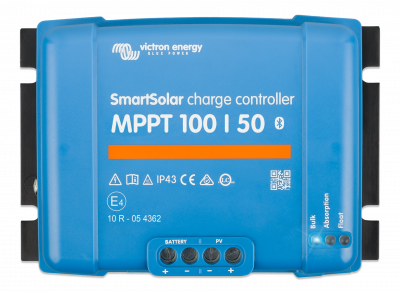
 $247.73
$247.73 $181.07
$181.07